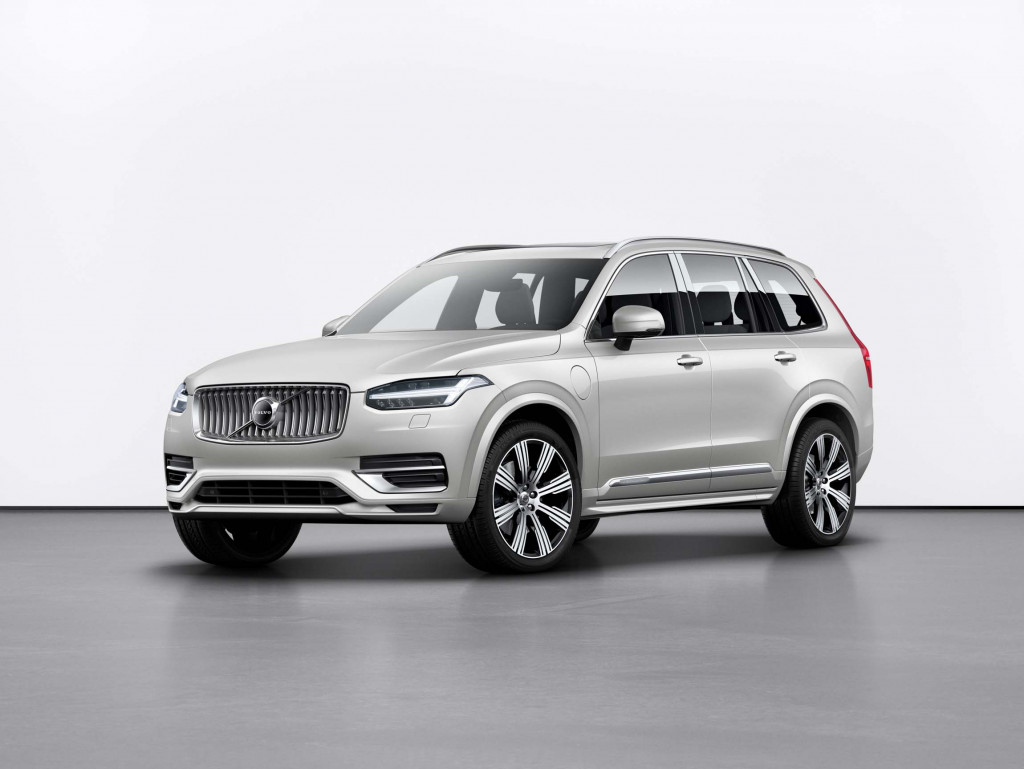Almost three-quarters of Americans see electric cars as the future of transportation, according to a new Volvo/Harris poll released Tuesday.
In the poll conducted last October, which surveyed 1,510 drivers in the U.S. during the middle of October, including 250 electric-car drivers, 74 percent of all respondents agreed that electric cars are the future. Among EV drivers, the number rose to 79 percent.
The biggest obstacle wasn't range but available charging infrastructure: 61 percent of respondents cited more charging infrastructure as the biggest factor holding back their purchase, similar to the 58 percent who say their biggest concern is running out of power.
The same concern about not being able to find a charging station was the second biggest obstacle for buyers considering purchasing an EV at 49 percent.
DON'T MISS: AAA says interest in electric cars rivals pickups: so where are the sales?
Other leading factors included:
- Lower purchase prices would be a big motivator: 57 percent of non-electric car said they would more likely to buy an electric car if it didn't cost any more than a conventional car. Bigger government incentives would convince 41 percent of buyers to go electric.
- A significant 40 percent of those who haven't bought an electric car said they'd be more likely to buy an electric car if they could try one for 30 days before buying. That could give buyers an opportunity to find chargers on their most common routes and try them to see for themselves how long it takes to charge, and whether an electric car's range can get them where the need to go.
- Automaker-sponsored car sharing programs that could give electric-car buyers access to gas-powered or hybrid cars for occasional needs such as vacation travel would inspire another 32 percent to buy electric.
- Wireless charging made the wish-list of 29 percent.
- More than a quarter, 26, percent, called for styling similar to conventional cars, perhaps implying that they are put off by the—unusual—styling of many of the electric cars released so far.
MUST READ: Volvo XC90, XC60 T8 plug-in hybrids add electric miles for 2020
Once people drive an electric car, they quickly adapt to any limitations and begin to see electric cars as the future, the study found. While 58 percent of all Americans surveyed were worried about running out of juice in an electric car, only 38 percent of electric-car drivers in the study confirmed the same. 65 percent of those who drive an electric car said they had range anxiety when they first bought it, but that it diminished after a few months.
Almost half of all drivers (49 percent) were concerned about the availability of charging stations, but that numbers dropped to only 30 percent among EV drivers.
Only a bare majority of electric-car drivers, 51 percent, said they mainly charged at home. Another 16 percent charge mainly at work, and 12 percent once they reach their destinations. More, 14 percent, say they charge on the go (perhaps mainly Tesla-owning electric car owners?) 61 percent say they find public charging stations unreliable.

2020 Volvo XC90
The poll also asked electric-car drivers who mainly charge away from home what they would like to see in public chargers. The highest response was the ability to pay more for a faster charge, cited by almost half of drivers, 48 percent.
Almost as many, 42 percent, wished for chargers located at a cafe with wi-fi access, while 32 percent wanted a public charger at their gym, and 26 percent wanted one where they go for vehicle maintenance. (It's unclear what this might mean for an electric car beyond a dealership, tire stores, or maybe brake shops or car washes.) 27 percent wished for rewards points or other gamified rewards to keep drivers coming back.
Once people bought electric cars, the challenges became easier and the benefits got clearer—mostly.
CHECK OUT: Volvo's electrification push expanding to every corner of the market
When asked the top benefit of driving an EV, almost 60 percent of drivers cited overall cost savings. Almost three quarters of electric-car drivers say fuel savings outweigh any extra up-front purchase price, but only 60 percent of non-EV drivers have the same confidence.
Half cite the overall environmental benefits of driving an electric car, and even more, 73 percent, say driving and EV makes them feel less guilty about making less-green decisions in other areas of their lives.
On a few subjects, actual electric car drivers had more concerns than those who don't yet own an electric car: An equal 22 percent of both EV drivers and all drivers were concerned about not having enough choice of models. More electric-car drivers (22 percent) were concerned about their performance ability than all drivers (20 percent.)
READ THIS: Future Model 3 rival: Volvo Polestar 2 electric performance car teased
And only 14 percent of all drivers expressed concern about electric cars overwhelming the electric grid, but 17 percent of electric-car drivers did.
Finally, non-EV drivers perhaps predictably didn't see the benefits of driving electric cars form behind the wheel. Only 36 percent cited quieter driving from an EV as an advantage, compares with 40 percent of EV drivers. And only 19 percent cited handling responsiveness as an advantage, compared with 29 percent of EV drivers.
Volvo is one of several luxury automakers in the process of converting their lineups to electric powered models, so it has an interest in learning how to sell more of them.












